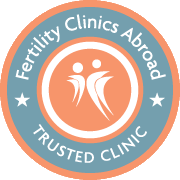Covid-19 fertility and pregnancy – What we know so far
by Dimitrios Dovas, last updated 10 Apr 2020,
4 min read
The new corona virus (SARS–COV–2) causes the Covid-19 disease, which amongst others affects the respiratory system of the affected individuals. The virus was first identified in Wuhan city in Hubei province in China. It is believed that this virus strain was initially transmitted to humans from animals. Now we know that the vast majority of cases are due to human to human transmission. The virus may be transmitted directly through respiratory secretions of an infected person which can enter our mouth, eyes or nose or indirectly by touching surfaces that are contaminated by the secretions of an infected person and then touching our own mouth, eyes or nose.
Although at the beginning of the outbreak there was almost no evidence to suggest vertical transmission of the virus (from the pregnant mother to the fetus), now we know that such transmission is probable. There are reports that at least in two neonates born from women with Covid-19, antibodies against the virus were isolated. The type of the antibodies found in these babies were antibodies that can’t cross the placenta, so they were not of maternal origin. This means that the babies have been exposed to the virus and they created these antibodies themselves. It is not yet known if the transmission of the virus occurred during pregnancy or during labour when the babies came into contact with maternal blood or secretions.
There is no evidence at the moment that the new corona virus is teratogenic. However, the probable vertical transmission alongside the limited available data makes the scientists cautious on reassuring the public. The negative experience with Zika virus is recent. Data from infections of other respiratory viruses during pregnancy like MERS and SARS are limited, so we can’t link at the moment Covid-19 with increased risk of miscarriage, preterm delivery or late pregnancy loss.
Despite the fact that the immune system of pregnant women is naturally suppressed, pregnant women do not seem to be more susceptible to contract the infection compared to the general population. It seems more likely though that Covid-19 will cause more severe symptoms in pregnant women, as is the case with other viral infections. The severity of the symptoms may be higher towards the end of the pregnancy. Although pregnant women generally represent a high-risk population, we should remember that the absolute risk of severe disease is considered small. In many pregnant women the infection might be asymptomatic or with only minor symptoms.
There is no current evidence to suggest a negative effect of the virus on sperm, oocytes or the fertility potential of the individuals. However, the possible effects on pregnant women or babies as well as that all health resources are directed towards dealing with Covid-19 in the community, has led all fertility scientific societies to recommend suspension of fertility treatments.
The European Society of Human Reproduction and Embryology (ESHRE) as well as the Greek National Authority on Human Reproduction have developed very clear guidelines on the management of infertile patients during the Covid-19 pandemic. All fertility treatments are generally suspended apart from treatments to individuals diagnosed with cancer who wish to preserve their fertility prior to cancer treatment. In these cases, egg or sperm freezing is allowed. A specific group of interest are women who approach their 50th birthday. Since this is the legal limit of offering fertility treatments, prolonged suspension of services due to the outbreak would mean that those women will not be eligible for treatment once the pandemic is over. Special consideration is given to this group of women and therefore treatment may be considered on an individual basis.
We need to emphasize that the data presented in this article refer to our to date knowledge on Covid-19. New evidence will come up on a daily basis, so this information needs to be updated regularly. ESHRE has announced today the creation of a portal for healthcare professionals where we can report our observations about pregnant women with Covid-19, so we can expand our knowledge on the effect of the disease among pregnant women.
The psychological impact of the virus outbreak in the general population is expected to be significant both due to the pandemic itself as well as its economic consequences. This will apply particularly to countries that have been hit hard by the pandemic. Nobody knows at the moment when and more importantly how normality will be restored. This is why all health care facilities should consider offering ongoing psychological support to their patients and staff.
It is of absolute importance to follow the official guidelines from your local health authorities and avoid being informed from non-reliable sources.
All guidelines are updated regularly according to new available data.
Stay safe

Dimitrios Dovas, MD, DFFP
Dimitrios is the Clinical Director of Newlife Center of Reproductive Medicine, in Thessaloniki Greece.











